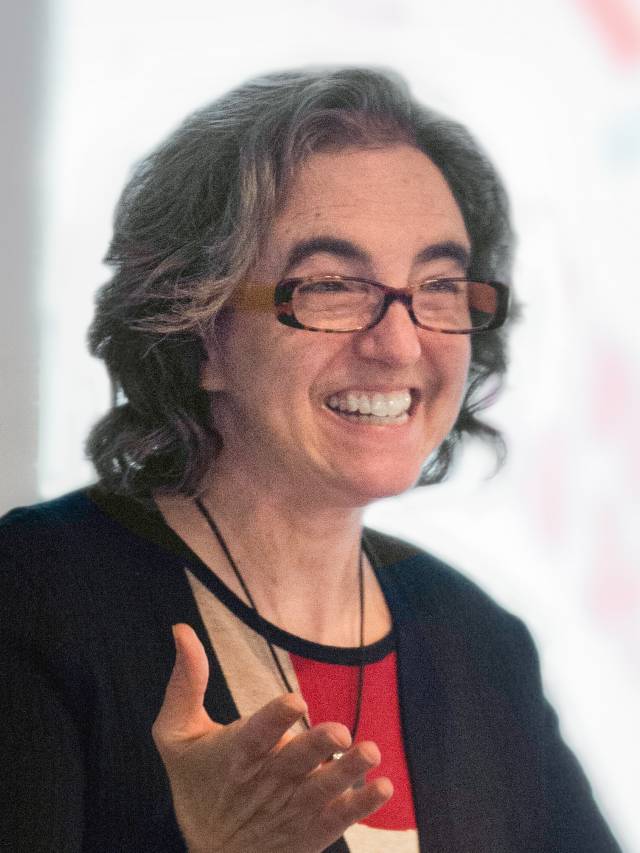
Maria DiBattista

Four Princeton University faculty members have been named recipients of the Graduate Mentoring Awards by the McGraw Center for Teaching and Learning and the Graduate School. They will be honored during the Graduate School’s Hooding ceremony at 4:30 p.m. on Monday, May 27.
The award winners are Maria DiBattista, the Charles Barnwell Straut Class of 1923 Professor of English; Alison Isenberg, professor of history; Tania Lombrozo, the Arthur W. Marks ’19 Professor of Psychology; and Andrés Monroy-Hernández, an assistant professor of computer science.
The mentoring award recognizes Princeton faculty members who nurture the intellectual, professional and personal growth of their graduate students. Graduate students nominate faculty members for the award. Students also serve on the committee that selects the winners, along with faculty members and senior staff from the McGraw Center and the Graduate School. The award honors faculty in each academic division and includes a $1,800 prize and a commemorative gift.

Maria DiBattista
A faculty member since 1974, Maria DiBattista specializes in twentieth-century literature and film, the European novel, and narrative theory.
Students praised DiBattista’s deft approach to drawing out their ideas and offering guidance. Her mentoring is “based on a bedrock of encouragement, deep conversation, and honesty,” said one student. “Perhaps the most important thing about Maria as a mentor is her commitment to my growth not only as a scholar but as a person; she has modeled, for me, how to have high expectations without giving burden, how to be insightful with grace.”
Her “impact on my academic work and professional development has been immense,” said a student who appreciated how DiBattista focused on the importance of interdisciplinary and comparative thinking.
Another student observed, “I have had several mentors throughout my Ph.D. years and undergraduate years, but none so crucial in the combination of academic rigor and deep trust. If mentoring is something more than teaching, it is because it encourages the mentee to become him or herself.”

Alison Isenberg
Alison Isenberg writes and teaches about nineteenth- and twentieth-century American society. She joined the Princeton faculty in 2010.
“Professor Isenberg best models how I would want to teach undergraduate and graduate history courses,” said one student. “Her mentorship and continued support have profoundly shaped how I view my role as an academic.”
Several students praised her approach to class discussions, where she created a welcoming environment that encouraged participation and lively debate while offering students insightful feedback. “I always appreciate her sharp questions that force me to think about the bigger picture,” one student said.
Others appreciated Isenberg’s guidance outside the classroom. “Alison goes the extra mile as a mentor — many times moving her other meetings to meet with me and sending feedback overnight for urgent job-market items,” one student noted. “The fact that numerous graduate students have benefited from her insight and feedback, including those she does not directly advise, is a testament to both her breadth as a scholar and her character.”

Tania Lombrozo
Tania Lombrozo’s research aims to address fundamental questions about learning, reasoning and decision-making using the empirical tools of experimental psychology and the conceptual tools of analytic philosophy. She has taught at Princeton since 2018.
Many of Lombrozo’s students marvel at her dedication to her students, in everything from her quick responses to their queries to her intense focus on students’ priorities.
“She makes every one of her advisees feel like they are the center of her attention,” one student said. “She never lets an email go unanswered and nearly always replies with a thorough and thoughtful response within minutes. I genuinely have no idea how she does this, but it has led to a deep trust between us: I know that I can count on her because she cares about my success.”
Another student remarked, “Year after year, you write papers that she edits (even when flying to and from conferences), have personal catastrophes that she understands and accommodates, and you come to realize that — without ever being told what you should or shouldn’t do — she has helped you learn how you can become a great scientist.”

Andrés Monroy-Hernández
A faculty member since 2021, Andrés Monroy-Hernández focuses on human-computer interaction and social computing.
Students found Monroy-Hernández to be approachable and warm, and they were grateful for the invaluable guidance he provided as they made their way through the academic world. “He was always available to meet and provided actionable feedback,” said one student. "He was also kind and supportive. Those who know Andrés will agree he has an amazing ring of positive energy. For these reasons, I really enjoyed working with him even when research was hard.”
Praising his encouragement and kindness, one student noted, “Andrés is also a very heartwarming and positive person. He is the type of person who will ask you about your favorite ice cream place and your favorite basketball team. ... He will do everything he can to help you.”
Another student observed, “André's mentorship extends beyond academic and professional growth; he is our friend.” The student added that Monroy-Hernández “is a role model whose influence has been pivotal in my development as a researcher and individual.